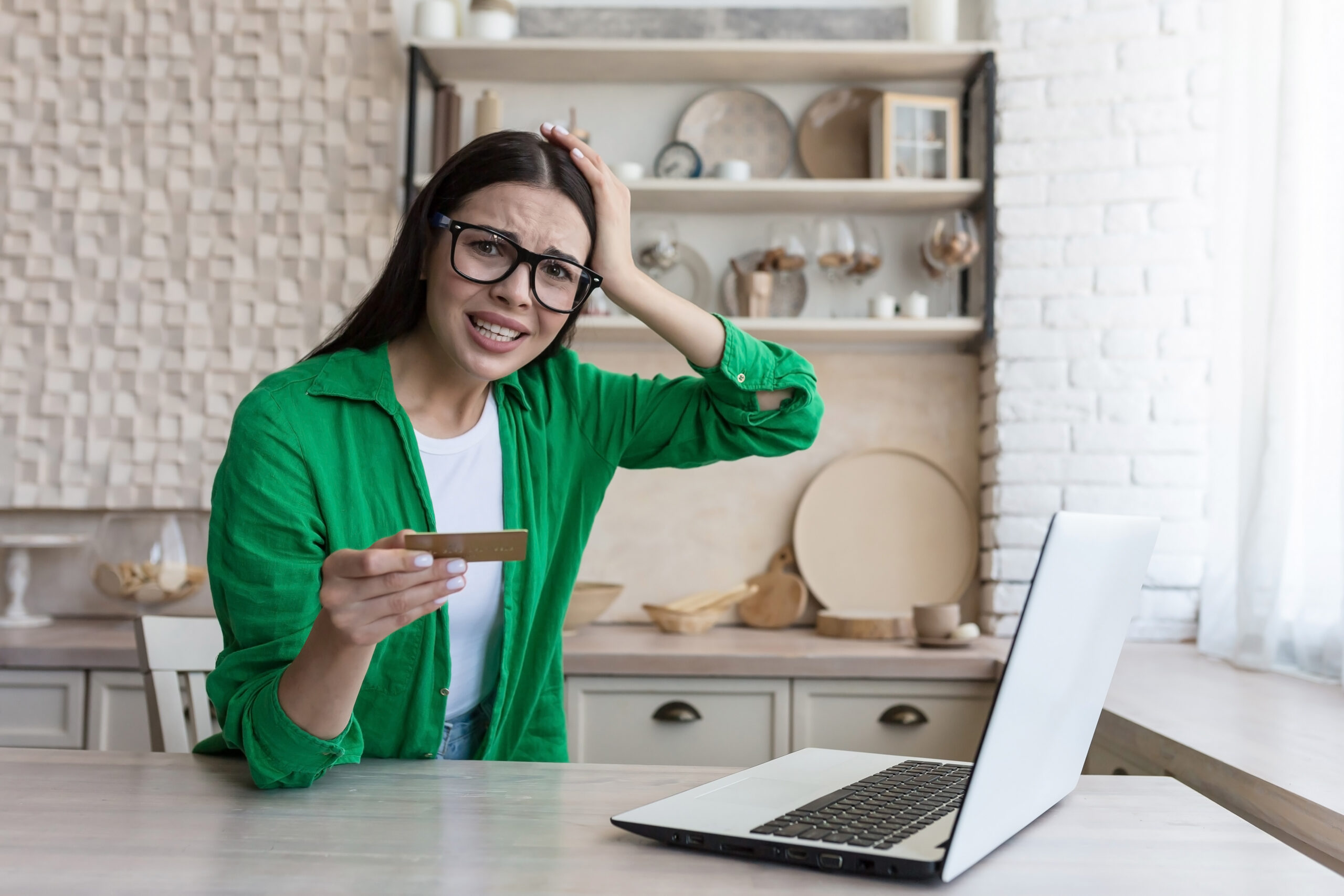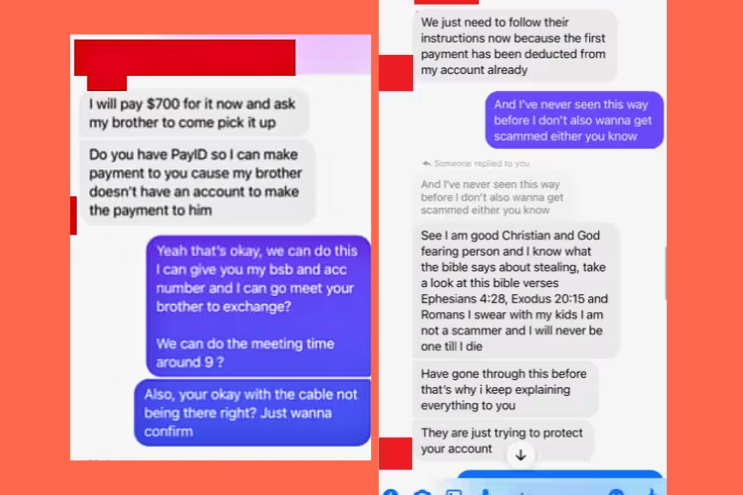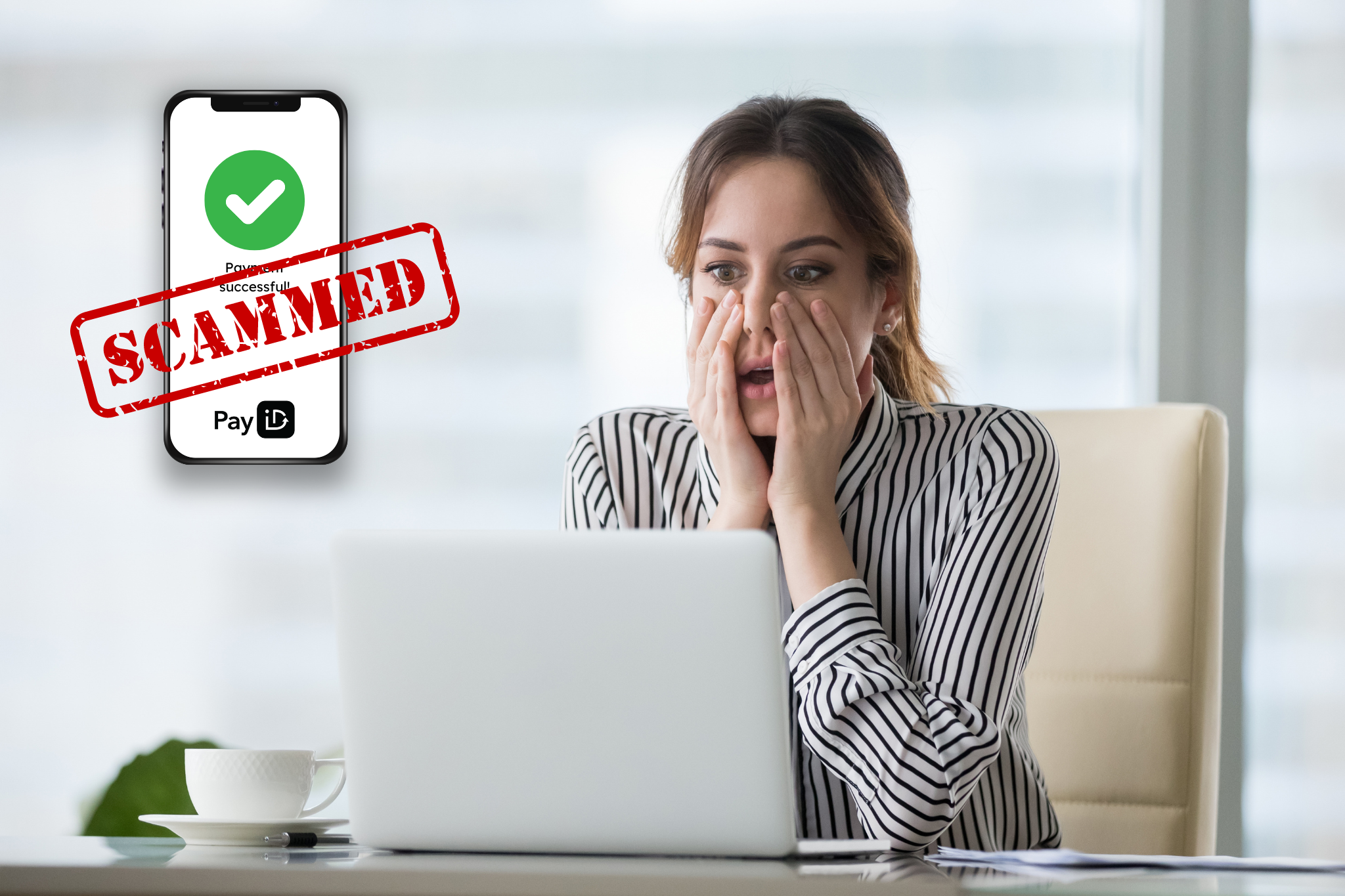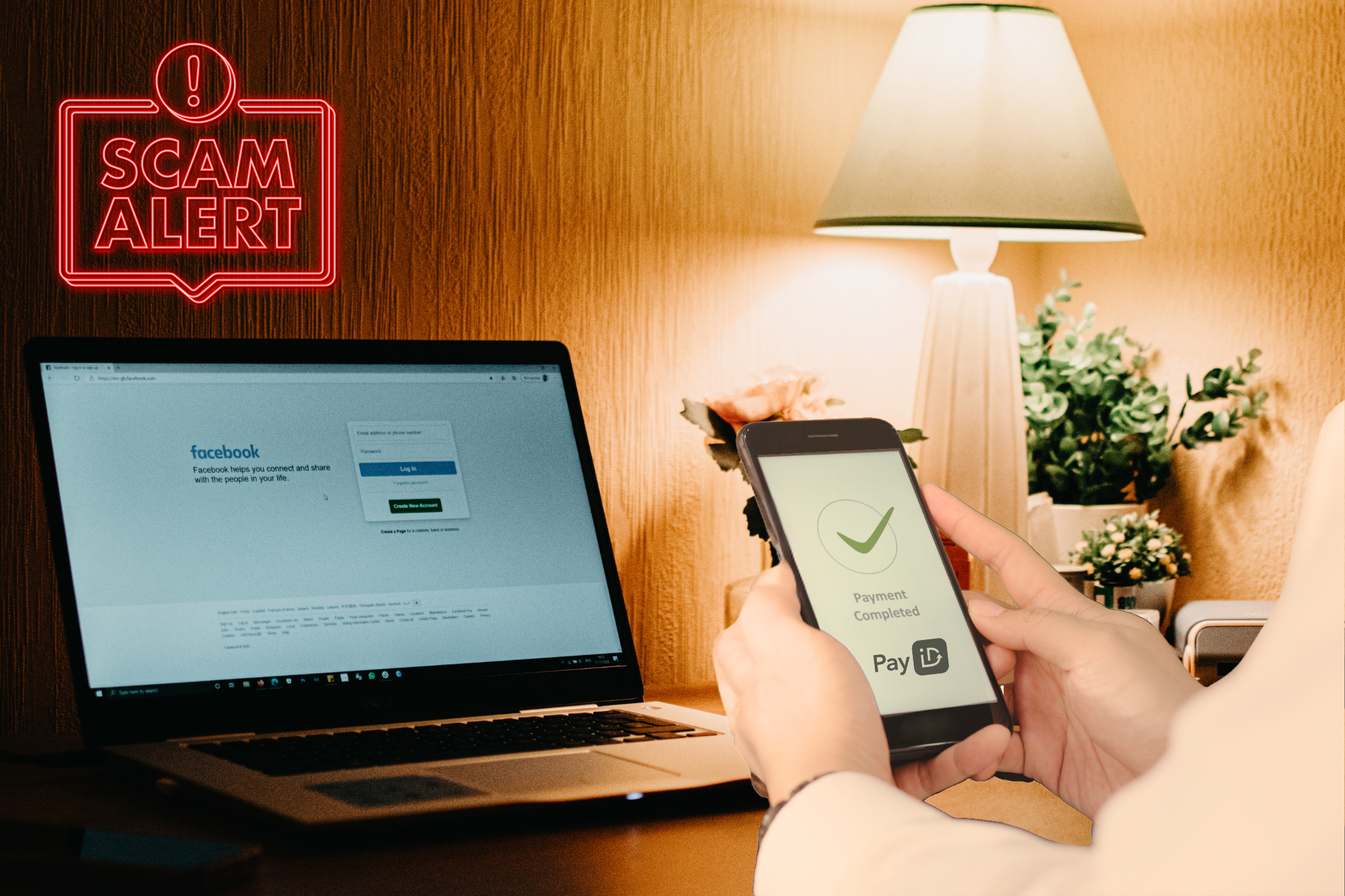
Facebook Marketplace: Beware of online scams
We’re always on the hunt for a good deal, whether buying or selling, so it’s hardly surprising that online marketplaces such as Facebook and Gumtree have proved so popular.
But wherever there are bargain hunters, there are scammers. There have even been instances of criminals using marketplaces as a way into homes. Police in Brisbane warned of an alarming increase in offences targeting online sellers.
So, how do you protect yourself and your savings from criminal activity? Let’s take a closer look at the marketplaces and the most common scams - and how to avoid them.
What is an online marketplace?
Simply put, an online marketplace mirrors the bustling energy of a traditional flea market, but in a digital format. They provide a space where people can conveniently buy and sell a diverse range of items without leaving their homes. These platforms act as a bridge, connecting eager buyers with diverse sellers offering an array of products and services.

Unlike a traditional e-commerce website, which showcases products from a single brand or company, an online marketplace hosts multiple sellers in one place. You get the benefit of choice, competitive pricing and a convenient one-stop shopping experience.
While several platforms have sprung up over the years, a few giants dominate the landscape.
Facebook Marketplace
It's one of the largest platforms of its kind and is integrated into the social media giant Facebook owned by Meta. This marketplace offers items from people in your community, or even globally, based on your profile. An added advantage is that you can gauge the credibility of a seller through their Facebook profile, mutual connections and online interactions.
eBay
If you were buying and selling in the early days of the internet, then eBay might hold a sense of nostalgia for you. It stands tall as one of the trailblazers in the online marketplace industry. Its standout feature is its auction-style module, allowing users to compete in real-time for products. For those who prefer a straightforward purchase, the 'Buy It Now' option is also available.
From antiques and collectibles to the latest tech gadgets, eBay has something for everyone.
Gumtree
Gumtree is a platform with a local focus. Think of it as a digital classifieds section, where you can find everything from secondhand furniture to pet adoption.
It doesn't offer an auction feature like eBay and isn't embedded in a social media network like Facebook Marketplace. Gumtree offers a clutter-free interface, with a layout that allows you to easily browse items within specific categories.
Gumtree has a more informal, community-centred vibe, making it ideal for local trades.
How easy is it to get scammed on online marketplaces?
The flipside of the convenience and variety of online marketplaces is the potential risk of scams. It's an unfortunate reality that snagging a deal could sometimes lead unsuspecting shoppers straight into the arms of scammers.
But why is scamming so prevalent in these platforms?
-
- Volume of Users - With a staggering volume of users and transactions, it becomes a playground for scammers. Take 2021, for instance. Facebook Marketplace saw a colossal one billion visitors. With numbers that high, it's easier for a few rotten apples to hide among genuine sellers and buyers.
- Anonymity - Many online marketplaces allow users to maintain a level of anonymity, providing a shield for those with deceitful intentions. Without solid verification methods, it's tricky to gauge the trustworthiness of the person on the other side of the screen.
- The Lure of a Bargain - Scammers prey on the age-old human penchant for a good deal. By dangling the carrot of unrealistically low prices, they manage to lure in countless unsuspecting victims. A disheartening statistic from 2022 revealed that Australians were defrauded of over eight million dollars through classified scams.
Common pitfalls sellers should watch out for
If you plan to sell items via an online marketplaces, stay informed about common scams that can target you to stay one step ahead.
Payments made with stolen credit cards
Some buyers may use stolen credit card information to complete a purchase. While the payment might initially appear in your account, once the actual cardholder notices the fraudulent charge, they'll initiate a chargeback, leaving you without the item and the payment.
Sending you a ready-made shipping label
If a buyer is overly insistent on using their shipping service and sends you a ready-to-use label, be cautious. These can sometimes be linked to hacked or stolen shipping accounts.
Asking for verification codes to confirm you're real
Although it might seem like an added security layer, sharing verification codes can lead to unauthorised access to your account or be used to authenticate fraudulent transactions.
Wanting you to ship items before paying
This starts with the buyer showing a keen interest in your item and they may even engage you in seemingly normal conversation to build trust. If a buyer asks for shipment before payment, using all sorts of justifications, be wary. They might offer to show "proof" of upcoming payments, such as a doctored screenshot from a banking app or an email from their bank. This can leave a seller both without the item and the expected payment.
Using PayID
PayID is a relatively new payment method that many banks claim is secure. But many sellers are still unfamiliar with it. Scammers exploit this unfamiliarity, sending counterfeit PayID emails to trick sellers into transferring funds, with messages like "X has transferred $$$ to your account, but there’s a problem with your newly opened account.” The email instructs a seller to add funds into their PayID account. If a seller does as instructed, the funds are sent directly to the scammer rather than their own account.
This happened to Alexandra Duffin, who almost got duped into sending a scammer $500. Everything seemed legit until she looked at the sender's email address. It was from a Gmail address, and that's when the alarm bells went off in her head. Big businesses use their domain.

How to stay safe on online marketplaces
Guard your personal information
Safeguarding your personal data should be a priority. Share only what's necessary for the deal. It's usually okay to share your first name and your town or city. Avoid sharing specific address details, your full name, or your phone number unless vital for the transaction, such as when the item has to be posted (more on this later).
Maintain communication within the platform
Beware of anyone urging you to communicate outside the marketplace. Doing so might seem convenient, but it exposes you to potential threats. Keeping your conversation within the platform offers double benefits: ensuring privacy and allowing the site to keep an eye out for suspicious activity. Should any issue arise, having an archived chat can be a lifesaver.
Opt for secure payment methods
Opt for payment methods that offer scammer protection, such as credit cards or PayPal, which often have robust fraud protection measures. This strategy provides an added layer of protection, helping you recover your money if you inadvertently engage with a scammer.
Ask specific questions of buyer or seller
Talking to the buyer or seller can offer valuable insights into the transaction's legitimacy. Ask pointed questions about the item's condition, history, and other relevant details. Scammers often stumble when it comes to specifics, giving vague or inconsistent answers that can be a telltale sign something's amiss.
Ask for a signed receipt
A signed receipt provides a tangible transaction record, listing the items sold, the agreed-upon price, and both parties' acknowledgement of the sale. This can be invaluable if any disputes arise later or you need to prove the transaction's legitimacy for any reason, particularly for high-value or significant transactions.
Follow your instincts
Never underestimate the power of intuition. If any aspect of a transaction feels unsettling, it might be your instincts warning you of potential trouble. Heed those feelings. It's better to abandon a transaction that gives you pause than to forge ahead and potentially get scammed.
To post or not to post?
Both options come with their own set of risks. Meeting in person allows you to inspect the item before handing over your money but carries the risk of meeting a stranger. In Brisbane, a woman was almost robbed after using her home as a meeting place, with police warning of a rise in online targeting. If you do choose to meet in person, always do so in a public place and, if possible, bring a friend.
Choosing the postal route might seem like the safer bet, but it comes with its own set of complications. Posting carries the risk of the item not being as described or not arriving at all, especially now that online delivery scams are prevalent. If you opt for postage, use a tracked and insured service.
How do online marketplaces protect against scammers?
Online marketplaces are increasingly aware of the risks of fraud and scams, but the level of protection varies from platform to platform. Here's a look at some standard protective measures and how specific marketplaces stack up.
General precautions across marketplaces
Facebook Marketplace, eBay and Gumtree have security measures such as data encryption and secure payment portals. They also often provide educational material and reminders on avoiding scams, informing buyers and sellers of best practices and red flags.
Gumtree
Gumtree doesn't offer a verification process for its users, but it provides guidelines and reminders about conducting transactions safely. While this information can be helpful, the onus is on the user to follow best practices to avoid scams.
Facebook Marketplace
Much like Gumtree, Facebook Marketplace doesn't verify buyers and sellers. However, it gives reminders and tips on how to avoid scams. It's worth noting that Facebook has a review system that allows you to see comments and ratings for sellers, which can be a helpful tool for assessing credibility.
eBay
eBay goes further with its "Authenticity Guarantee" for specific categories such as collectibles, watches, and sneakers. This feature involves third-party experts verifying the item's authenticity, providing buyers with an extra layer of security. Moreover, eBay has a comprehensive system of buyer and seller feedback and a money-back guarantee for items different from what is described.
The varying degrees of protection across these platforms lead to the question: Should online marketplaces do more to protect against scammers? Many users feel they should be more proactive, implementing verification processes or more rigorous monitoring to safeguard their users better.
If you have a complaint about a buyer or seller on a marketplace
Whether it's an unreliable buyer or an unscrupulous seller, it's essential to know your rights and the steps to address the issue. Here's a breakdown of what you can do:
Reporting within the platform
Facebook Marketplace: You can directly report a buyer or seller through the Facebook interface. To report any suspicious activity, navigate to the user's marketplace profile and select the "Report" option. This will set the review process in motion.

Gumtree: If you come across a problematic ad or user, you'll typically find the "Report Ad" or "Report user" option near the ad, which you can click to raise concerns.
eBay: Their system offers a more structured approach with the resolution centre. Here, you can file a complaint, and eBay can often play a mediating role to settle differences.
Seeking help from local authorities
If you suspect you've been a scam or fraudulent activity victim, report the issue to the Australian Competition and Consumer Commission (ACCC) through their Scamwatch service. Depending on the severity of the case, you may also want to file a report with your local police.
Approach fair trading authorities
Each state and territory in Australia has a Fair Trading Office where you can complain. They offer advice and services to help resolve disputes and can sometimes intervene in cases involving deceptive or unfair conduct.
Legal action
For particularly contentious disputes, considering small claims court could be on the table. However, this can be lengthy and costly, so it's generally considered a last resort.
Online marketplaces are an easy way to rid yourself of excess clutter or snap up a bargain, but you need to research to ensure you don’t get caught with an empty bank account. If you’ve followed the advice above and used the right payment processes but still have an issue, you are entitled to a refund. Lodge a complaint with us, and we’ll help you handle it.






